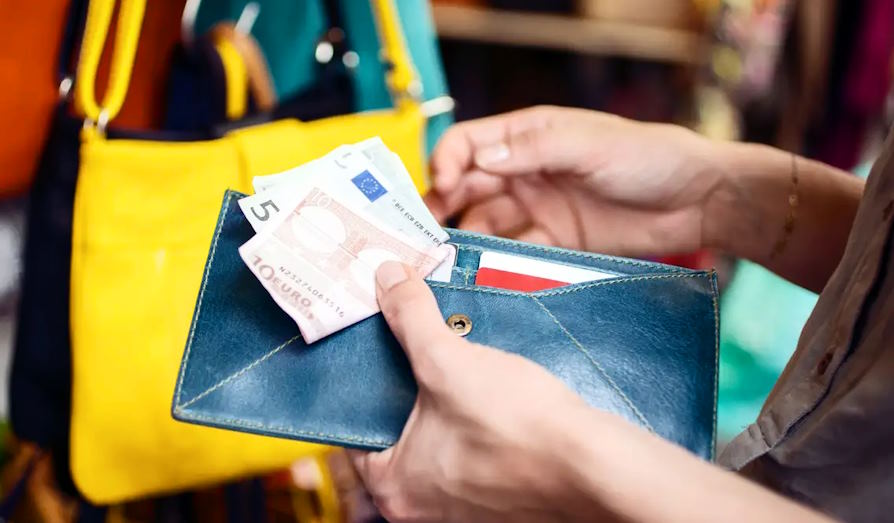As travelers embark on journeys across the diverse landscapes of Europe, one crucial decision looms large: how to navigate the realm of currency and payments. In a continent where each country boasts its own unique charm, language, and, interestingly, payment preferences, choosing the right method becomes a strategic element of the adventure. Credit cards and cash stand as the primary contenders in this financial duel, each wielding its advantages and drawbacks.
Advantages of Using Credit Cards in Europe
- Convenience and ease of use: Credit cards, with their seamless transactions and no need for exact change, offer unparalleled convenience. In major European cities and tourist hotspots, card readers are ubiquitous, allowing for swift and hassle-free payments.
- Widely accepted in urban areas and popular tourist destinations: From the fashionable streets of Paris to the historic alleys of Rome, credit cards are widely accepted, providing travelers with a sense of security and ease when navigating through urban landscapes and well-trodden tourist destinations.
- Enhanced security features, including fraud protection: Credit cards come armed with robust security measures, including fraud protection and the ability to freeze accounts if suspicious activity is detected. This can be a significant advantage, especially in crowded places where the risk of theft or skimming is higher.
- Ability to track and manage expenses digitally: Modern credit card statements offer detailed breakdowns of transactions, helping travelers keep a meticulous record of their expenses. This digital tracking can be immensely beneficial for budget-conscious individuals or those seeking clarity on their spending patterns.
Drawbacks of Using Credit Cards in Europe
- Limited acceptance in rural or less touristy areas: While credit cards dominate in urban centers, the story changes in rural or less touristy areas. Some establishments may still prefer cash transactions, and card acceptance can be sporadic in these regions.
- Potential for foreign transaction fees: Unbeknownst to some travelers, foreign transaction fees can add up quickly. Understanding the fee structures associated with using credit cards abroad is crucial to avoiding unexpected expenses.
- Reliance on electronic infrastructure: In certain remote areas, particularly in Eastern Europe or less developed regions, the reliance on electronic infrastructure may limit the use of credit cards. This can pose challenges for those accustomed to the seamless digital transactions of urban environments.
- Security concerns, such as card skimming: While credit cards come equipped with security features, the risk of card skimming persists, especially in crowded tourist spots. Travelers must remain vigilant to protect their personal and financial information.
Advantages of Using Cash in Europe
- Widely accepted across all regions, including remote areas: Cash is the undisputed champion when it comes to universal acceptance. In Europe, where traditions and local customs vary widely, having physical currency on hand ensures smooth transactions, even in the most remote corners.
- No risk of foreign transaction fees: One of the most significant advantages of cash is the absence of foreign transaction fees. Travelers can avoid the often-unpredictable costs associated with credit card usage and currency exchange.
- Greater control over budgeting and spending: Carrying a set amount of cash provides a tangible limit on spending. This physicality can help travelers stick to their budget and avoid the temptation to overspend, especially in the midst of the allure of European markets.
- Avoidance of potential issues with card acceptance: While credit cards may face occasional resistance, cash encounters no such hurdles. The simplicity of cash transactions eliminates any uncertainties related to card acceptance or technical difficulties.
Drawbacks of Using Cash in Europe
- Security concerns, especially in crowded tourist areas: Carrying large amounts of cash can make travelers targets for theft, especially in crowded tourist areas. The risk of pickpocketing or losing cash is a legitimate concern that requires constant vigilance.
- Inconvenience of carrying and managing physical currency: Unlike credit cards that fit neatly into wallets, cash can be bulky and inconvenient to carry, particularly in large denominations. This can be especially challenging for those aiming for a minimalist travel experience.
- Lack of transaction tracking compared to digital methods: Unlike credit card transactions, cash exchanges leave no digital trail. For those who prefer to track their spending meticulously or require detailed records for reimbursement purposes, this lack of transparency can be a drawback.
- Limited recourse in case of loss or theft: While credit cards offer the ability to freeze accounts and mitigate losses in case of theft, cash provides no such recourse. Once lost or stolen, cash is nearly impossible to recover, emphasizing the importance of secure and vigilant handling.
Factors to Consider When Choosing Between Credit Cards and Cash
- Destination-specific considerations: Researching the payment preferences of your specific destinations is crucial. While credit cards may be convenient in major cities, rural areas may necessitate a reliance on cash.
- Personal spending habits and preferences: Understanding your own spending habits and preferences is key. If you prefer the discipline of a set budget, cash might be your ally. However, if you value the convenience of digital tracking, credit cards may be more suitable.
- Safety and security concerns: Assessing the safety and security of your chosen payment method is paramount. While credit cards offer fraud protection, cash provides physical security. Balancing these considerations ensures a comprehensive approach to financial safety.
- Potential cost implications, including fees and exchange rates: Being aware of the potential costs associated with each payment method is essential. Foreign transaction fees, currency exchange rates, and other financial considerations should guide your decision-making process.







